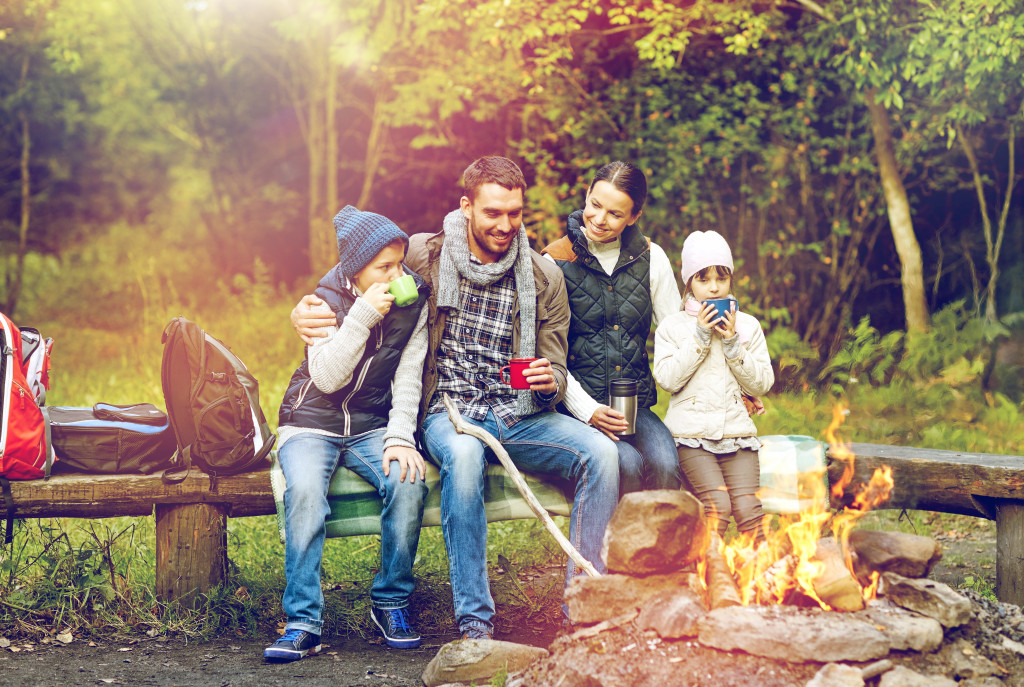Going on a camping adventure over the weekend can be a memorable experience or a living nightmare. Usually, a bad or good camping experience depends on one factor: what you’ve packed and forgotten before the trip. Bringing the essential camping items can differentiate a relaxing vacation in nature from a trip to the hospital.
Whether you’re an experienced camper or an amateur, don’t leave without bringing the essentials needed for an outdoor adventure. Below are eight of the essentials you need for your camping trip to be enjoyable.
1. Tent
Even if it’s mesmerizing to sleep under the stars, you’ll still need a tent or an emergency shelter for when it rains. Or else, a heavy dew, freaky snowstorm, or midnight deluge will leave you susceptible to hypothermia, miserable, and soaked. Your tent will protect you and your gear from high winds and other unexpected problems.
Whether you’re bringing a cabin-style tent or two-person type, you should make sure you’ve also prepared the other accessories: a rain fly, stakes, tent poles, and rope.
2. Water Bottles
You’ll need water to survive in the wild, and you’ll quickly run out of water the further you venture into the woods. One of the last things you want to experience is getting stranded without any clean water supply, especially since drinking from a lake or pond can lead to severe problems due to bacterial growth.
Even if you’re just a few meters away from your vehicle, you should always carry the right amount of water in a large container. Then, keep water purification tablets or filters on hand if you need water from a lake or pond.
3. First Aid Kits
You’ll unlikely experience life-threatening situations during your trip, but hiking can still result in blisters that will require bandaging. Minor scrapes and cuts can quickly turn into an infection if left unattended, so pack antiseptics or bandages. Your first aid kits should also include an emergency whistle.
Also, make sure to pack insect repellents and sunscreen. Bug bites and sunburns can lead to lacerations, making the trip a living nightmare.
4. GPS Devices and Maps
If one part of your itinerary list is hiking on unfamiliar terrains, you’ll need a compass, map, or charged GPS device. Significant changes in the sun’s direction will make forest landmarks seem strange, causing people to become lost.
Unprepared campers and amateurs have occasionally ventured into the woods for days before finding their way back to camp or getting rescued. Getting stranded or lost in the woods, especially in areas with a limited water supply, is difficult. Even if the youngsters want to visit the nearest creek from your site, make sure you can safely find your way.

5. Portable Chargers
If you have plans of going on camping, you will not find a reliable electricity source. It would be best to look for an alternative to keep your appliances running, especially your phone. In this case, you can get one of the best portable power stations available. But these come in different functionality and quality.
For instance, they offer different output wattage, determining how quickly they can charge your devices. Besides, they have different voltage ratings, which affects the power station’s run time and the amount of power they can store.
6. Toiletries
Hardcore campers see toilet paper as an unnecessary item for an outdoor trip, but many testify that it’s essential. Leaves and barks are poor alternatives to tissue paper in both hygiene and comfort, and a rough backside will make sitting uncomfortable. Moreover, campgrounds with bathrooms will always run out of toilet paper.
If you’re camping in the woods and worried about how tissue paper can affect nature, use a biodegradable alternative or take a garbage bag for disposal.
7. Weather-appropriate Clothing
Going on an outdoor trip means only bringing a limited piece of clothing, so you should keep them dry at all times. Wearing damp clothes is unpleasant and dangerous in cooler seasons where hypothermia is a considerable risk. Damp gears can also be heavy, making your backpack difficult and uncomfortable to carry.
Use a lightweight, waterproof raincoat that can accommodate a few layers of clothing. If it doesn’t cover your backpack, try adding a rain bag to protect your gear.
8. Pocket Knives
Your pocket knives are the most common multipurpose tool for an outdoor trip. You can use it to skin a small animal, tighten a screw, deal with tangled vines, sharpen your stick, open a tightly sealed package, slice sausage or cheese, dice bait, cut fishing lines, trim a rope, and more. Without one, you’ll have a few issues with these tasks, making you feel frustrated. That makes the camping trip a sour one.
Going on a camping trip is an easy, affordable, and fun way to escape the everyday stress of life with your family and friends. But nothing can ruin your weekend trip like forgetting an essential piece of gear.
